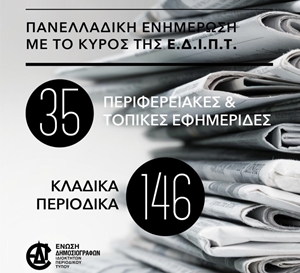Swiss Re manages COVID-19 onset with industry-leading capital position and strong investment result | Swiss Re
- Group net loss of USD 225 million reflects the impact of COVID-19, notably a pre-tax charge of USD 476 million for the property and casualty businesses
- Property & Casualty Reinsurance (P&C Re) net income of USD 61 million, despite losses related to COVID-19
- Life & Health Reinsurance (L&H Re) net income of USD 299 million; return on equity (ROE) of 15.8%
- Corporate Solutions net loss of USD 167 million, impacted by losses related to COVID-19
- Life Capital net loss of USD 261 million, reflecting mark-to-market adjustment for Phoenix Group Holdings plc’s share price
- Strong return on investments (ROI) of 3.2%; running yield of 2.5%
- Successful April 2020 P&C Re renewals: premium volume up 4%; nominal price increase of 8%
- Industry-leading capital position maintained, with Group Swiss Solvency Test (SST) ratio comfortably above 200% as of 31 March 2020
Swiss Re reported a net loss of USD 225 million for the first quarter of 2020, reflecting the impact of the COVID-19 crisis on the underwriting (USD 476 million) and investment (net USD 300 million) results. The first-quarter result was also adversely impacted by the mark-to-market valuation of Phoenix Group Holdings plc shares, which Swiss Re will receive upon completion of the ReAssure sale. Swiss Re maintains its industry-leading capital position, with the Group SST ratio comfortably above 200% as of 31 March 2020.
Swiss Re’s Group Chief Executive Officer Christian Mumenthaler said: “The COVID-19 pandemic has had a deep impact on society, governments and businesses across the globe. Our heartfelt sympathies go to those who have lost a loved one or have otherwise suffered in the crisis. These difficult times reinforce our resolve to continue working towards Swiss Re’s vision – making the world more resilient. We do this each day by handling claims, renewing contracts, sharing our knowledge and innovating. Swiss Re’s business remains resilient despite the financial impact of the crisis on our results. And our industry-leading capital position means we will weather this situation as a strong partner for our clients.“
Asset Management successfully navigated market turbulence
Market turbulence was responsible for a US GAAP net valuation loss of approximately USD 300 million. A higher gross impact was substantially contained through gains from credit and equity hedging of approximately USD 650 million. In addition, the high quality of the portfolio and proactive management decisions during the first quarter limited impairments to less than USD 20 million. The Group ROI was 3.2% for the quarter, while the running yield declined to 2.5%, reflecting the unprecedented low-yield environment.
Shareholders’ equity declined to approximately USD 28.0 billion from USD 29.3 billion at the end of 2019, mainly driven by net unrealised losses of USD 655 million. Swiss Re’s book value was at USD 96.82 per share at the end of the first quarter.
Swiss Re’s Group Chief Financial Officer John Dacey said: “We took timely and substantial measures to protect our balance sheet and hedge investment positions in the first quarter, ahead of one of the sharpest sell-offs in recent history. This allowed us to largely mitigate the negative impacts of market turbulence, and the low impairments in our portfolio underscore its quality. As markets remain volatile, we continue to be vigilant to the challenges the current conditions present.“
P&C Re net income of USD 61 million, ROE of 13.2% excluding COVID-19 impact
P&C Re reported a net income of USD 61 million for the first quarter, up from USD 13 million in the same period of 2019. The business remained profitable despite charges related to COVID-19 and natural catastrophes. The COVID-19 crisis impacted the result by USD 253 million as reserves were established primarily for expected claims for cancelled or postponed events. Large natural catastrophe losses of USD 397 million somewhat exceeded the expected losses for the quarter. This reflected the Business Unit’s strong presence in Australia, where hailstorms and significant flooding compounded the major bushfire losses already reserved for in 2019, as well as more typical winter storm losses in Europe.
P&C Re’s net premiums earned increased strongly by 12% to USD 4.7 billion. The annualised ROE was 3.0% compared with 0.6% in the first quarter of 2019. Excluding the impact from COVID-19, the ROE was 13.2%. The reported combined ratio was 110.8%. Excluding the claims related to COVID-19, the Business Unit is on track to reach the normalised1 combined ratio estimate of 97% for the full year 2020.
Successful April P&C renewals supported by improving pricing, particularly in Japan
April renewals were conducted without disruptions, despite the challenges presented by the COVID-19 crisis. Treaty premium volume increased by 4%, and P&C Re achieved a nominal price increase of 8%, with a notable strong increase on Japan windstorm risk of more than 50%. Risk-adjusted price quality year-to-date remained unchanged, reflecting lower interest rates and material adjustments to loss assumptions.
L&H Re ROE exceeded its target range
L&H Re reported a net income of USD 299 million for the first quarter of 2020, reflecting strong underwriting and investment results. No material COVID-19 claims impact (either mortality or critical illness) emerged in the quarter, notable at this point given Swiss Re’s market-leading franchise in Asia. The Business Unit continues to work closely with clients to manage existing risks and develop new solutions.
The ROE of 15.8% is well above the target 10–12% range. Net premiums earned and fee income increased to USD 3.4 billion from USD 3.1 billion in the first quarter of 2019.
Corporate Solutions turnaround on track
Corporate Solutions reported a net loss of USD 167 million for the quarter, as reserving for claims related to the COVID-19 crisis totalled USD 223 million. Most of these losses are reserves posted for anticipated claims related to event cancellations, a line of business Corporate Solutions decided to exit in the restructuring announced last year.
Excluding the COVID-19 impact, Corporate Solutions’ combined ratio was 103.2%, 13 percentage points better than the reported ratio one year ago. On a normalised2 basis and excluding the COVID-19 impact, the Business Unit is on track to achieve the combined ratio estimate of 105% for 2020.
The strong pricing momentum experienced in 2019 continued in the first quarter, with Corporate Solutions achieving price increases of 13%, and current market conditions are expected to reinforce this trend.
Life Capital impacted by a decline in Phoenix Group share price; continued growth in open books
Life Capital reported a net loss of USD 261 million in the first three months of the year, attributable almost entirely to a mark-to-market charge (USD 251 million pre-tax) on the announced sale of ReAssure due to the decline in Phoenix Group Holdings plc’s share price. This impact was partly offset by a hedge on the broader UK equity market. The agreed sale of ReAssure is on track and is expected to close mid-2020, subject to the necessary regulatory and antitrust approvals.
Net premiums and fee income for the Life Capital Business Unit decreased to USD 497 million from USD 548 million in the first quarter of 2019 due to lower fee income reflecting market conditions. Gross premiums written of the open books increased 20% year-on-year when measured at constant exchange rates.
Outlook
Swiss Re’s Group Chief Executive Officer Christian Mumenthaler said: “The COVID-19 pandemic is far from over and its broader economic and social consequences will be far-reaching. Our industry plays an important part by absorbing some of the pain caused by this crisis. At Swiss Re, we continue to be here for our clients, run our business without interruptions, and use the flexibility allotted by our capital strength. We are confident that we will make a positive contribution. In the longer term, we will need to draw lessons from the current situation and look at public-private partnership solutions to ensure society can better deal with such large-scale disruptive events in the future.“
View Full Press Release here
















